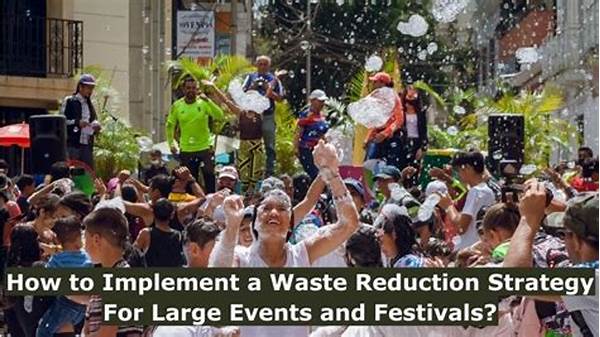Lights, camera, action! As the sun sets and the vibrant lights take center stage, the thrill of events and festivals captivates audiences across the globe. Music pulses through the crowd, laughter echoes, and creativity reigns supreme. But behind this façade of joyful revelry lurks a daunting reality: the abundance of waste. From discarded food containers to single-use plastics, the aftermath of an extravaganza can be environmentally draining. So, the million-dollar question is, how do we enjoy these occasions responsibly, minimizing our ecological footprint? The answer lies in adopting effective strategies for reducing waste at events or festivals.
Read More : Food Storage Containers Perfect For Packing Kid’s School Lunches
Gone are the days when waste management was an afterthought. Today, it’s a primary concern for event organizers who aim to transform wasteful habits into green consciousness. In an era where sustainability is not just a buzzword but a necessity, incorporating waste-reduction tactics is not merely a choice but an obligation. In this insightful journey, we unveil creative, impactful strategies to cut down waste, ensuring events are celebrated not only by attendees but also by Mother Nature. Get ready to delve into a world where entertainment meets environmental stewardship, all while retaining the flair and fun you crave!
The Importance of Sustainable Event Management
When we talk about reducing waste at events, it’s essential to understand the urgency and importance behind it. With statistics indicating that festivals can produce over 23,500 tons of waste each year, as stakeholders, it’s crucial to rethink our strategy. Seasoned event organizers have goals not only to entertain but also to innovate waste management practices, ensuring a sustainable future. Rather than viewing waste disposal as a back-office function, they employ it as a central theme of their event planning process.
Many events and festivals claim to be zero-waste, aiming to divert at least 90% of waste from landfills. The strategies embrace steps such as extensive recycling, composting, and reusable infrastructure. For instance, Glastonbury, an epitome of sustainable event management, introduces deposit-return schemes on cups, creating a closed-loop system. This world-renowned festival exemplifies how strategic planning, when guided by a sustainable vision, can resonate with attendees long after the event concludes.
Effective Strategies for Minimizing Event Waste
Incorporate Reusable and Eco-Friendly Materials
One of the most effective strategies for reducing waste at events or festivals is to incorporate reusable and eco-friendly materials. Forget outdated approaches to waste management and embrace a system of reusables, where cups, plates, and utensils are collected and sanitized for future use. Not only does this approach alleviate the environmental burden, but it also introduces a sense of novelty and engagement for guests. By opting for biodegradable materials and encouraging vendors to do the same, you’re extending the life cycle of products beyond the event’s tenure.
Implement Smart Waste Management Systems
Invest in an intelligent waste management system that segregates recyclables, compostables, and trash with precision. The modern approach goes beyond the regular trash can; innovative companies now offer waste-sorting robots and digital bins equipped with sensors. These technologies, coupled with informative signage and trained volunteers, significantly reduce contamination and ensure proper disposal routes. Emphasizing waste sorting at the source is a striking feature of smart, sustainable event planning.
Feedback & Community Involvement
Create a sense of accountability by involving the community. Foster collaborations with local waste management facilities and educate event-goers on proper waste-disposal habits. Offering workshops or interactive sessions regarding waste reduction not only engages attendees but also promotes mindful participation. Collect and consider feedback post-event for continuous enhancement of waste reduction methods—a dynamic strategy that promotes environmental consciousness even after the event is over.
Read More : Review Of Waste Container Brands A Vs. B
Actionable Steps to Reduce Event Waste
The time for passive observation is over. Implement these hands-on actions to take charge of waste management at your next event:
Implementing Real Waste Reduction Strategies
Ready to translate these strategies into impactful actions? Here’s how successful waste reduction looks in practice:
Real-life Testimonials
Consider the testimonial from a recent music festival organizer: “Incorporating sustainable strategies transformed our event. Not only did we reduce waste by 65%, but we also received overwhelming support from our attendees. They appreciated the effort and were enthusiastic participants in our green initiatives.”
Final Words on Green Event Success
In conclusion, strategies for reducing waste at events or festivals are not just feasible—they are fundamental for environmentally conscious celebration planning. By focusing on innovative waste management solutions and engaging stakeholders holistically, you can create an event that’s not only spectated but celebrated for its sustainable strides. Next time you party, make it one for the planet, and dance to the rhythm of a cleaner, greener world!










